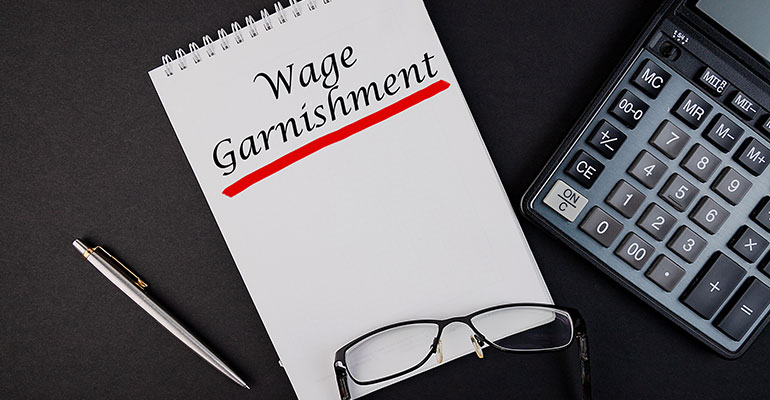
An employer may legally withhold a portion of a worker’s wages to settle a debt to a creditor through a process known as wage garnishment. It can be a difficult situation for people who are having a hard time making ends meet because it can cause stress and financial instability. However, there may be options available for negotiating a wage garnishment. In this post, we will discuss whether it is possible to negotiate a wage garnishment and the steps that individuals can take to address this issue.
Understand the Process
The first step in negotiating a wage garnishment is to understand the process. When a creditor obtains a judgment against an individual, they may file for a wage garnishment order. Once the order is issued, the employer is legally required to withhold a portion of the employee’s wages and remit it to the creditor. However, there may be specific rules and limitations in place regarding the amount that can be garnished and the types of income that are exempt.
Review the Debt
Before negotiating a wage garnishment, it is crucial to review the debt owed to the creditor. It may be possible to challenge the validity of the debt or negotiate a settlement to reduce the amount owed. Individuals can request documentation from the creditor to verify the debt and review their options for resolving the debt through a payment plan or settlement.
Seek Legal Advice
It may be beneficial for people facing wage garnishment to seek legal counsel. An attorney or tax resolution/consultation services can evaluate the situation of the person, offer advice on the law and its restrictions, and present options for negotiating a wage garnishment. Additionally, they might be able to argue against the legitimacy of the debt or bargain a settlement on behalf of the debtor.
Contact the Creditor
The creditor can also be contacted by people who are having their wages garnished to discuss their situation and work out a payment plan or settlement. They may be willing to work with the individual to develop a plan that is affordable and manageable. It is essential to keep in mind that the creditor may be more willing to negotiate before the wage garnishment order is issued, as they may have more leverage at that point.
Request a Hearing
If an individual believes that the amount being garnished is too high or that their income is exempt from garnishment, they may be able to request a hearing. This hearing allows the individual to present evidence and arguments to challenge the garnishment order. It is essential to note that the request for a hearing must be made within a specific timeframe after the garnishment order is issued.
Consider Bankruptcy
In some cases, filing for bankruptcy may be an option to stop a wage garnishment. Bankruptcy puts an automatic stay on collection actions, including wage garnishments. However, it is essential to weigh the long-term consequences of bankruptcy, including the impact on credit scores and financial stability.
Work with a Credit Counseling Agency
Working with a credit counseling organization may also be advantageous for those whose wages are being garnished. These organizations can offer assistance with budgeting, debt management, and creditor negotiations. On behalf of the person, they might also be able to negotiate a settlement or payment schedule.
Consider a Debt Consolidation Loan
Another option to address wage garnishment is to consider a debt consolidation loan. This loan allows individuals to consolidate multiple debts into a single monthly payment with a lower interest rate. By doing so, they can reduce their overall debt burden and potentially avoid wage garnishment.
Provide Proof of Financial Hardship
In some cases, individuals facing wage garnishment may be able to provide proof of financial hardship to the creditor or court. This proof can include evidence of a job loss, medical emergency, or other unforeseen circumstances that have led to financial difficulties. By doing so, the individual may be able to negotiate a reduced payment plan or have the garnishment order lifted altogether.
Stay Current on Tax Obligations
To prevent potential wage garnishment, it’s critical to keep up with your tax obligations. Wages can be garnished by the Internal Revenue Service (IRS) if taxes are not paid. People can prevent the stress and expense of wage garnishment by paying their taxes on time and taking care of any unpaid debts right away. Negotiating a wage garnishment is possible, but it requires a proactive approach and an understanding of the legal process and limitations. Individuals facing wage garnishment should review the debt owed, seek legal advice, and contact the creditor to negotiate a payment plan or settlement. They may also consider requesting a hearing or working with a credit counseling agency. Ultimately, taking action early on and being proactive can help individuals address a wage garnishment and regain financial stability.
